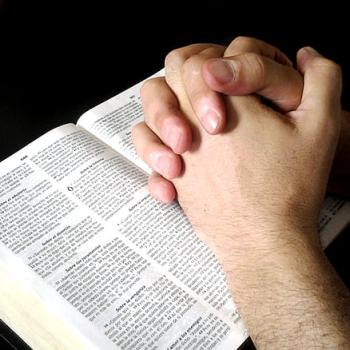Says Dalene: Yes, the term is relative. But I prefer to define it by my own beliefs and actions rather than allowing someone else to define it and therefore me according to their own biases.
And so it goes. Dalene's strategy might solve the problem if the conversation of feminism was only between a feminist and herself, or only between herself and other feminists. But internal dialogue, however vital to feminism, is not its end. Any successful feminist agenda will require effective communication and cooperation with a wide variety of people, some of whom stop listening as soon as the "f-word" is mentioned -- and these are often the people feminists most need to reach. Ironically, as Claudia Bushman noted on Radio West, a feminist label on a given organization, project, or person might actually preclude the positive change it hopes to effect, especially among Mormons.
This is unfortunate, given the obvious benefits feminism has afforded all of society, including members of the Church. Sharlee points out:
For most of history, women have been treated as lesser beings. It is, in large part, thanks to the courageous voices and actions of feminists that we now have the right to own property, the right to vote, any claim at all for custody of our children in the case of divorce, access to university education, maternity leave, advances toward equal pay for equal work, protection against domestic violence and sexual harassment, and on and on. We owe a tremendous debt to women such as Mary Wollstonecraft, Fanny Wright, Elizabeth Cady Stanton, Susan B. Anthony, Emmeline Wells, and Simone de Beauvoir. Heck, we even owe a lot to Betty Friedan and Gloria Steinem! We may not agree with them on many issues, but we certainly enjoy the fruits of their efforts.[6]
Indeed. But Mormons tends to see the good in feminism only in hindsight, if ever. We may comfortably laud the victories of suffragettes and other early feminists -- our own sisters among them -- and these days, nobody tells Mormon women they shouldn't wear pants. (Except when attending church. Or the temple. Or working at the Church Office Building. Hmm, I take that back.) Yet we're reluctant to admit that, as Mara says, "It's not just pants-wearing and vote-demanding feminists that have helped us all." Even those Mormons who gratefully acknowledge this debt may shy away from contemporary feminism, despite its commitment to worthy goals like securing relief for women and children in poverty, supporting single mothers, and fighting gender-based violence in our own nations -- not to mention advocating for basic human rights for women worldwide.
It seems Mormons are squeamish about contemporary feminism for at least three reasons. One is our culture's overall resistance to any progressive social or political action. We blanch at relatively new concepts like the stay-at-home-Dad, perhaps forgetting that status quo measures like birth control were cutting-edge controversies just a few decades ago. Another reason is that successful feminist agendas tend to lose their feminist label as they're absorbed into society at large. Domestic violence, for example, is no longer considered a "feminist" issue -- it's a human issue, one that no Mormon worthy of the name would dismiss, and one we can (and should) thank modern feminists for pioneering.
A third reason is that for most Mormons, the fruits of feminism -- especially contemporary feminism -- are a mixed basket at best. We may see more harm than good in the current trending away from traditional gender roles and family structures. We may agree in a general sense that women's voices should be heard, yet find feminist voices threatening to our values as individuals and as Mormons. Even ardent feminists among us can't deny that a feminist utopia -- meaning the gender-blind society idealized by liberal feminists, or the gynocentric society idealized by radicals -- is a far cry from Zion, despite the shared emphasis on equality. To decrease the polarization of feminist and non-feminist Mormons, our ongoing conversation must include due criticism of feminism as well as due credit.
Yet as we acknowledge the duality in feminism, we must take care not to overlook its ultimate gift: the opportunity for women to exercise their power of choice. So says Angie, who no longer considers herself a feminist -- "I don't see the overall direction of the movement as anything I want to be associated with" -- but sees this critical benefit nonetheless:
The biggest thing I appreciate about feminism is that in opening doors and expanding freedoms for women, it has given me the opportunity to know by my own experience that being a wife and mother is what I really want to be doing. I'm not doing it only because I have to -- I am exercising my agency. It seems to me that that is as it should be.




